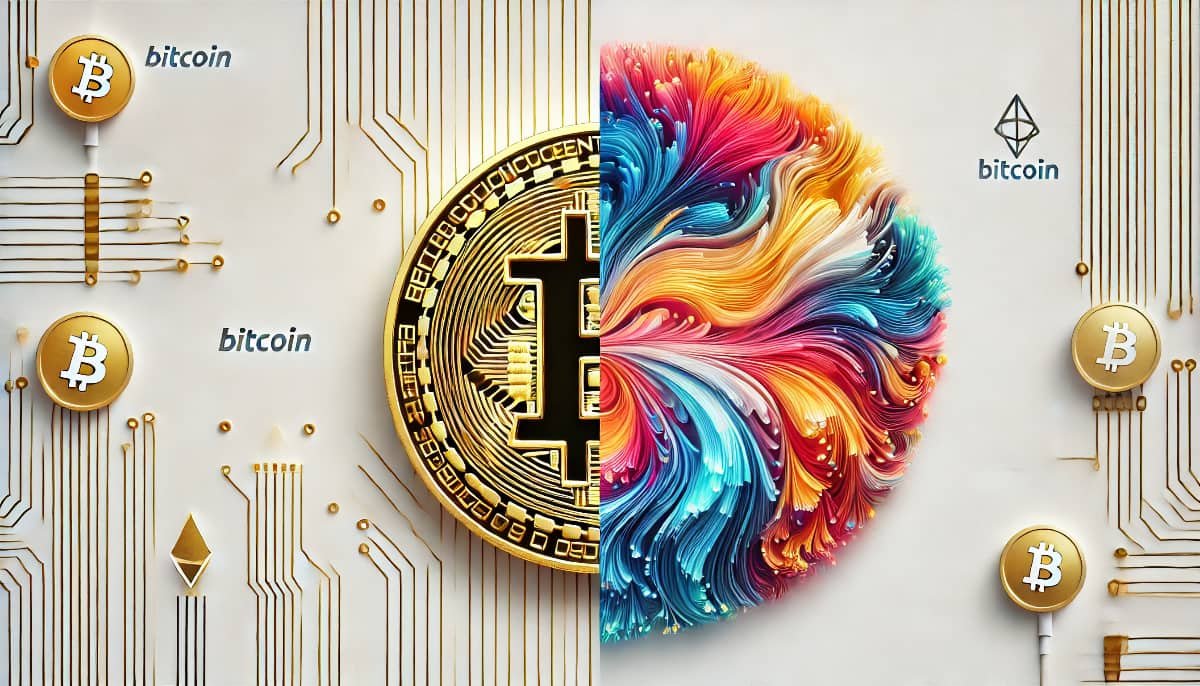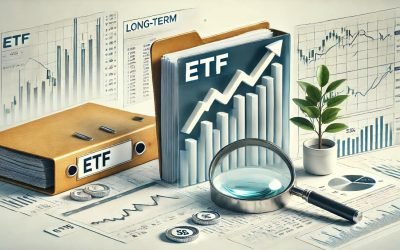Introduction to Bitcoin and NFTs
In the rapidly evolving world of digital assets, two terms have gained significant attention: Bitcoin and NFTs (Non-Fungible Tokens). While both are rooted in blockchain technology, they serve vastly different purposes and have unique characteristics. This article aims to delve deep into the key differences between Bitcoin and NFTs, providing a comprehensive understanding of each and their respective roles in the digital economy.
What is Bitcoin?
Origins and Purpose
Bitcoin, introduced in 2009 by an anonymous entity known as Satoshi Nakamoto, was the first cryptocurrency to gain widespread recognition. It was designed as a decentralised digital currency, enabling peer-to-peer transactions without the need for intermediaries like banks.
How Bitcoin Works?
Bitcoin operates on a blockchain, a distributed ledger technology that records all transactions across a network of computers. This ensures transparency and security, as each transaction is verified by network nodes through cryptography and recorded in a public ledger.
Key Features of Bitcoin
- Decentralisation: No central authority controls Bitcoin; it is maintained by a network of nodes.
- Limited Supply: There will only ever be 21 million Bitcoins, making it a deflationary asset.
- Security: Transactions are secured by cryptographic algorithms, making them highly secure.
- Transparency: All transactions are recorded on a public ledger, ensuring transparency.
What are NFTs?
Introduction to NFTs
Non-Fungible Tokens (NFTs) are unique digital assets that represent ownership of a specific item or piece of content, such as art, music, or virtual real estate. Unlike cryptocurrencies like Bitcoin, NFTs are not interchangeable on a one-to-one basis, as each token has distinct properties and value.
How NFTs Work
NFTs are typically created and traded on blockchain platforms like Ethereum. Each NFT contains metadata that provides information about the asset it represents, including ownership details and transaction history. This metadata is stored on the blockchain, ensuring the authenticity and provenance of the asset.
Key Features of NFTs
- Uniqueness: Each NFT is unique and cannot be replicated, making it ideal for representing rare digital items.
- Ownership: NFTs provide verifiable proof of ownership, which is recorded on the blockchain.
- Interoperability: NFTs can be traded across different platforms and marketplaces.
- Programmability: NFTs can include smart contracts that automate certain actions, such as royalty payments to creators.
Comparing Bitcoin and NFTs
Purpose and Use Cases
Bitcoin and NFTs serve different purposes within the digital economy. Bitcoin is primarily used as a digital currency and store of value, while NFTs are used to represent ownership of unique digital assets.
| Aspect | Bitcoin | NFTs |
|---|---|---|
| Purpose | Digital currency, store of value | Ownership of unique digital assets |
| Interchangeability | Fungible (interchangeable) | Non-fungible (unique) |
| Supply | Limited (21 million) | Unlimited (each NFT is unique) |
| Blockchain | Bitcoin blockchain | Various blockchains (e.g., Ethereum) |
Market Dynamics
The market dynamics for Bitcoin and NFTs are also distinct. Bitcoin’s value is influenced by factors such as market demand, scarcity, and macroeconomic trends. In contrast, the value of NFTs is driven by the uniqueness and desirability of the underlying asset, as well as the reputation of the creator.
Investment Considerations
Investing in Bitcoin and NFTs involves different considerations. Bitcoin is often viewed as a long-term investment and a hedge against inflation, while NFTs are considered speculative investments with the potential for high returns but also significant risks.
Technological Differences
Blockchain Platforms
Bitcoin operates on its own blockchain, which is specifically designed for secure and transparent transactions. NFTs, on the other hand, are typically created and traded on blockchain platforms like Ethereum, which support smart contracts and decentralised applications (dApps).
Smart Contracts
One of the key technological differences between Bitcoin and NFTs is the use of smart contracts. While Bitcoin’s blockchain is primarily focused on transaction verification, platforms like Ethereum enable the creation of smart contracts, which are self-executing contracts with the terms of the agreement directly written into code. This allows for more complex interactions and functionalities, such as automated royalty payments for NFT creators.
Scalability and Transaction Speed
Scalability and transaction speed are important considerations for both Bitcoin and NFTs. Bitcoin’s blockchain has faced challenges with scalability, leading to slower transaction times and higher fees during periods of high demand. In contrast, blockchain platforms like Ethereum are actively working on solutions to improve scalability and reduce transaction costs, such as the transition to Ethereum 2.0.
Environmental Impact
Energy Consumption
Both Bitcoin and NFTs have faced criticism for their environmental impact, particularly in terms of energy consumption. Bitcoin mining, which involves solving complex mathematical problems to validate transactions and secure the network, requires significant computational power and energy. Similarly, the creation and trading of NFTs on platforms like Ethereum also consume substantial energy due to the proof-of-work consensus mechanism.
Efforts to Reduce Environmental Impact
Efforts are being made to reduce the environmental impact of both Bitcoin and NFTs. For Bitcoin, alternative consensus mechanisms like proof-of-stake are being explored, although they have not yet been widely adopted. For NFTs, platforms like Ethereum are transitioning to Ethereum 2.0, which aims to significantly reduce energy consumption through a proof-of-stake consensus mechanism.
Legal and Ethical Considerations
Intellectual Property and Copyright
NFTs raise important legal and ethical considerations, particularly in terms of intellectual property and copyright. While NFTs provide proof of ownership for digital assets, they do not necessarily grant the buyer copyright or intellectual property rights. This has led to disputes and legal challenges, particularly when NFTs are created without the permission of the original creator.
Market Manipulation and Fraud
Both Bitcoin and NFTs are susceptible to market manipulation and fraud. In the case of Bitcoin, issues such as pump-and-dump schemes and market manipulation by large holders (whales) have been reported. For NFTs, concerns include the creation of fake or plagiarised assets, as well as wash trading, where the same asset is bought and sold multiple times to inflate its value artificially.
Future Prospects
Bitcoin’s Future
The future of Bitcoin remains a topic of much debate. Some believe that Bitcoin will continue to grow in value and adoption, becoming a mainstream store of value and medium of exchange. Others argue that Bitcoin’s scalability issues and environmental impact may limit its long-term potential.
The Future of NFTs
The future of NFTs is equally uncertain but full of potential. As the technology matures and more use cases emerge, NFTs could revolutionise industries such as art, music, gaming, and real estate. However, challenges such as market volatility, legal issues, and environmental concerns will need to be addressed for NFTs to achieve mainstream adoption.
Conclusion
In summary, while Bitcoin and NFTs are both rooted in blockchain technology, they serve different purposes and have unique characteristics. Bitcoin is a decentralised digital currency and store of value, while NFTs represent ownership of unique digital assets. Understanding the key differences between Bitcoin and NFTs is essential for anyone looking to navigate the complex and rapidly evolving world of digital assets.

Q&A Section
Q1: What is the primary purpose of Bitcoin?
A1: Bitcoin’s primary purpose is to serve as a decentralised digital currency and store of value, enabling peer-to-peer transactions without intermediaries.
Q2: How do NFTs differ from Bitcoin in terms of interchangeability?
A2: Unlike Bitcoin, which is fungible and can be exchanged on a one-to-one basis, NFTs are non-fungible and represent unique digital assets that cannot be replicated or exchanged on a one-to-one basis.
Q3: What blockchain platforms are commonly used for creating and trading NFTs?
A3: NFTs are typically created and traded on blockchain platforms like Ethereum, which support smart contracts and decentralised applications (dApps).
Q4: What are some of the environmental concerns associated with Bitcoin and NFTs?
A4: Both Bitcoin and NFTs have faced criticism for their high energy consumption. Bitcoin mining and the proof-of-work consensus mechanism used by platforms like Ethereum require significant computational power and energy.
Q5: What legal issues are associated with NFTs?
A5: NFTs raise legal issues related to intellectual property and copyright, as ownership of an NFT does not necessarily grant the buyer copyright or intellectual property rights. This has led to disputes and legal challenges, particularly when NFTs are created without the permission of the original creator.














 How to trade CFD? (00:49)
How to trade CFD? (00:49) How to trade binary options*? (01:22)
How to trade binary options*? (01:22) Forex. How to start? (01:01)
Forex. How to start? (01:01)